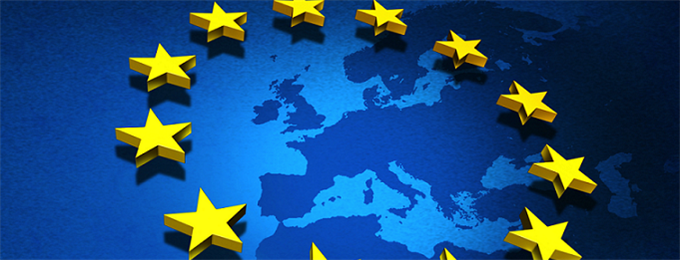The new European Research Area policy agenda shows political support for R&I – while the latter are not yet part of the discussions on the ‘Future of Europe’.
On 26 November 2021, the Council of the EU adopted the Council Conclusions on the governance of the renewed European Research Area (ERA) and the Council Recommendation on a ‘Pact for Research and Innovation (R&I) in Europe’ (see SwissCore article). The ‘Pact’ – the new ERA’s long-term guidance – reaffirms that Member States should spend 3% of their GDP (combined public and private investment) on R&I by 2030. The new ERA framework will structure the work on the ERA policy agenda 2022-2024 that is included in the Council Conclusions. The latter recognise the role of the ERA Forum, and its possible sub-groups, as the body responsible for the “coordination towards the effective implementation of the ERA policy agenda”.
The ERA governance also includes references to consulting and involving associated countries, stakeholders – and third countries. For instance, the ERA Forum “should co-design and coordinate the implementation of the ERA actions among the Commission, Member States and, on a case by case basis, associated countries, stakeholders, as well as relevant third countries”. Over the course of the past year and especially this autumn, R&I stakeholders consistently called on the EU institutions for a stronger and more permanent seat at the table during the upcoming ERA policy cycle. During a conference organised by the Slovenian Council Presidency in late October, stakeholders were able to provide recommendations for the new ERA (see SwissCore article). A further objective of the Council and the European Commission (EC) is to bring the new ERA and the European Education Area (EEA) closer together. In early November, seven working groups of the EEA strategic framework took up their work to shape the EEA.
While the new ERA framework demonstrates the political will to strengthen research and innovation at the EU and national levels, research and innovation are – so far – not a priority topic at the ongoing ‘Conference on the Future of Europe’. European R&I umbrella associations, in a Manifesto, call on the ‘Conference on the Future of Europe’ “to discuss and deepen Research & Innovation issues over the months to come, so as to place R&I at the core of the debate on the EU’s future challenges and priorities”. During one year, until spring 2022, the European Parliament (EP), the Council and the EC have committed themselves to listen to European citizens and to follow up on their inputs for the future of Europe, within their respective competences.
Research and innovation were, however, undisputedly important topics during the United Nations Climate Conference in Glasgow (COP26), which took place in the first half of the month. In her speech in Glasgow, EC President Ursula von der Leyen highlighted the role of R&I in addressing the challenge of reducing greenhouse gas emissions by providing key technologies driving the green transition. She stressed the importance of the European Green Deal objectives – and more concretely, Horizon Europe’s focus on climate change – mentioning that the programme “will devote at least 35% of its budget to climate objectives”.
Back in Brussels, November also brought tangible progress for European education, research and innovation (ERI) as the EP and Council reached an agreement on the EU’s 2022 budget. The EP was able to avoid the cuts to ERI as originally proposed by the Council and next year’s budget will largely follow the proposal put forward by the EC. The Parliament was able to add slightly to the 2022 budget for its priority areas, including ERI, bringing the Erasmus+ budget to €3.9 billion – an increase of €35 million compared to the EC proposal and the Horizon Europe budget to €12.2 billion, €100 million more than originally foreseen by the EC.
While the importance of R&I in solving the challenges of our time is demonstrated by the political support for the renewed ERA as well as in Glasgow, the association of longstanding and close partners to the Horizon Europe programme still lacks the necessary political support at the EU level (see SwissCore article). On 4 November, 25 European umbrella associations signed an Open Letter to President von der Leyen and the EC’s leadership in the R&I field, calling for a swift finalisation of the association of the UK to Horizon Europe. In the case of Switzerland, Swiss Federal Councillor Ignazio Cassis and his counterpart, EC Vice President Maroš Šefčovič, also addressed the question of Switzerland’s association to EU programmes during their meeting on 15 November. Federal Councillor Cassis stressed that from Switzerland’s perspective, it is counterproductive to link unrelated market access and cooperation agreements for political reasons. However, Vice President Šefčovič underlined during the press conference that in his view, Switzerland’s association to Horizon Europe remains linked to the larger political issues: “On Horizon Europe, we will take into account the development of the Swiss-EU relationship as a whole”. Next steps include the drafting of a common agenda, which will be discussed in January 2022 on the margins of the World Economic Forum in Davos.
Association of third countries to Horizon Europe is also a topic in the EP. As the EC’s approach to association is increasingly bringing in broader considerations of EU external political relations, illustrated by the current stance of the EC towards the United Kingdom and Switzerland, Members of the EP call for a stronger role of the EP in the process of association. Christian Ehler, MEP (EPP/Germany), makes the point in a ScienceBusiness op-ed that the EP should be more involved. Ehler thinks that “this would bring more transparency and clear consideration of the political aspects of the association relation”.

